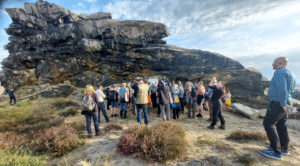INQUA 2444my: European Correlation of Quaternary Stages Boundaries (EQ)
European Quaternary stratigraphy and correlation is an ongoing research topic and serves as a base for mapping and unravelling local to regional Quaternary sequences.
Abstract
Europe is the cradle of western oriented Quaternary science and has a long history in geological mapping and scientific investigations of Quaternary marine and continental sedimentary successions. This tradition needs further scientific collaboration and correlation, connecting scientific communities and researchers from different Regions of Europe, involving and funding Early Career Scientists and DCRs’ Scientists to participate to the proposed activities. We plan to collect further data on several main Quaternary Stages and Sub-Stages boundaries and intervals all over the Eurasia and publish the results in Special Issues of the Journal of Quaternary International. Following the past Inter-Congress periods IFG SACCOM 1612F DATESTRA, the Geographic Database of the Terrestrial Quaternary Sites with stratigraphic importance of Europe will be implemented and made available to the Scientific community.
The wider area of Europe is especial interesting, because it contains transitions from the moist coast of the North Atlantic heated up by the Gulf Stream system to the dry continental interior of Eurasia and the strong gradient from boreal Scandinavia to subtropical Mediterranean regions. One ongoing SEQS topic in the upcoming multi year period, is the subdivision of the European Middle Pleistocene. As the base of the Middle Pleistocene is now formally ratified, it is time to have a closer look in particular at the early Middle Pleistocene, the period preceding the Elsterian/Anglian/Oka (MIS 12) Glaciation.

INQUA-SEQS 2024 meeting in Gavorrano, Italy. Photo taken in front of the headquaters of the Colline Metallifere National Park. © Markus Fiebig.
Objectives:
- Publication of new data about European Quaternary stratigraphy in JQI
- Further improvement of online Database DATESTRA
- Assessment of a Scientific Network all across Europe
- Funding of ECRs’ and DCRs’ for sharing their research at the SEQS Meetings
- Discuss new ideas within the Quaternary Communities
Project Leaders:
- Markus Fiebig, Austria
- Guzel Danukalova, Russia
- Pierluigi Pieruccini, Italy
Upcoming events
Next SEQS meeting is planned for 16.9. – 21.9.2025 in Vienna. The topic of the meeting is Quaternary stratigraphy and Quaternary maps as a base to understand the environment of mankind. Two-days meeting will be followed by three-days excursion held in Austria, Slovakia and Hungary.






